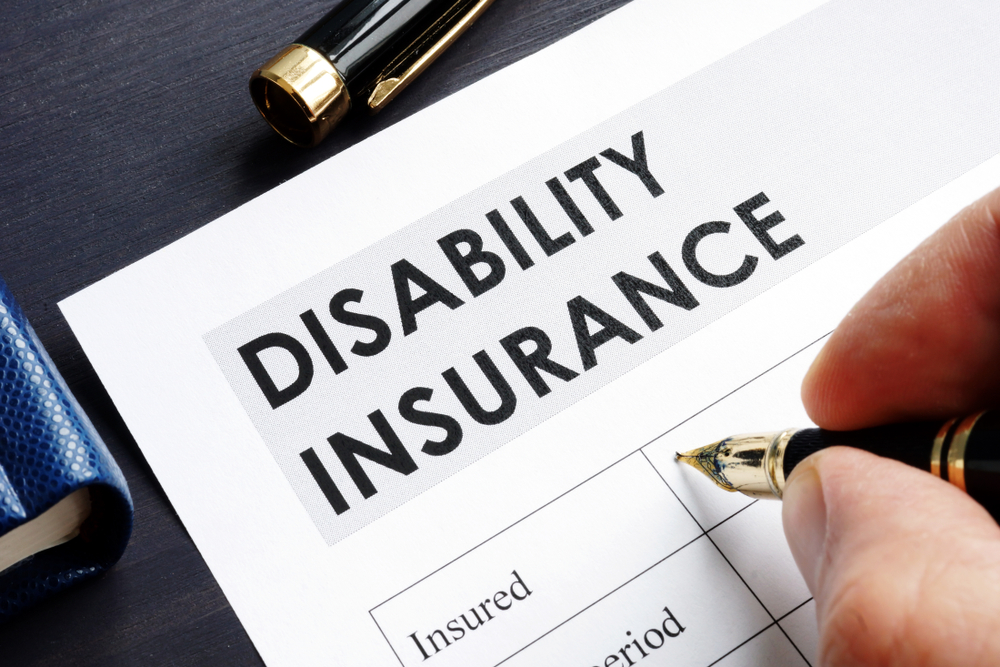Mental health issues can overtake you at any time, leaving you unable to do anything in your life, much less hold down a job. You may deal with sadness or anxiety, and you do not even want to get out of bed or go to work.
The good news is that mental health issues may make you eligible for short-term disability benefits. The bad news is that the insurance companies obligated to pay your benefits will make things as hard as possible for you.
If the insurance company has denied your disability benefits claim, you may have to fight. You are already handling a problematic condition at a very challenging time, and the last thing you want to do is participate in the legal process.
Hiring an experienced New Orleans short-term disability lawyer gives them the task of battling with the insurance company, allowing you to focus on your mental health issues.
Mental Health Conditions That Can Render You Disabled
When you are experiencing a mental health issue, it can be both devastating and crippling, and you will struggle to live the life that you were enjoying before the effects began. It may be complicated to function in your daily job when you cannot entirely focus on what you are doing.
You may experience the following conditions that can keep you from working:

- Depression
- Anxiety
- Obsessive compulsive disorder
- Post-traumatic stress disorder
- Schizophrenia
- Bipolar disorder
What Your Short-Term Disability Insurance Policy Covers
Your short-term disability insurance policy should cover you when you have a disability and cannot work.
You may have purchased this insurance from a company that promised to always be there for you when needed. Or, your employer may have given you coverage because they wanted to be competitive when recruiting and retaining talent. Either way, you expect to receive some benefit to help you when you cannot work.
Your short-term disability insurance policy should cover a percentage of the earnings that you were making for three to six months. The percentage of your earnings depends on your policy, with most paying you 40 to 70 percent of your pre-disability income.
You Have the Obligation to Show That You Are Disabled
You will need to prove that you are disabled to qualify for benefits under the terms of your policy. Each policy contains its definition of the word "disabled;" the exact words may vary, but the gist of each definition is the same. You must prove that you cannot work in your chosen profession, but you do not have to prove that you cannot do any work at all.
Insurance companies will not cover a pre-existing condition. If you have struggled with mental health issues for a prolonged period, they will deny your claim.
Additionally, suppose your mental health condition arose due to the rigors of your job or you developed post-traumatic stress disorder from something that you experienced. In that case, the insurance company will not cover the claim because it becomes a workers' compensation insurance situation.
Each short-term disability claim has an elimination period before filing a claim. Then, you must assemble a persuasive claim file showing the insurance company why you cannot work and are disabled.
You should take the time to focus on the claim paperwork because the insurance company will not hesitate to deny any claim that is less than 100 percent persuasive. They are very strict about both form and substance for disability claims.
Insurance Companies Are Very Strict About "Subjective" Claims
Insurance companies will always give you a hard time about a claim that relies on what you are reporting about your own experiences. They make things difficult enough when you have so-called objective test results and will never take your word for your condition.
Whenever insurance companies have a financial motivation to do so, they will do everything in their power to dispute you. They may deny the severity of your condition or claim that you can still work.
Reasons Why Insurance Companies May Deny Your Claim
Insurance companies usually claim you can tough it out because they do not care about your condition and try to not pay you any money for your claim.
They overestimate what you can do because they do not have to walk a mile in your shoes. Insurance companies fully understand your condition when they see the documentation but will do everything possible to minimize its severity.
Another trick that insurance companies may use is to claim that your mental health condition arose from your job because short-term disability insurance does not cover job-related illnesses and injuries. The insurance company may try to pass the buck to the workers' compensation insurance companies by claiming it is their problem.
Then, the workers' compensation insurance company may claim that your condition has nothing to do with work, leaving you between a rock and a hard place.
Your Documentation Needs to Be Thorough and Persuasive
You are always better off when you have documented your claim as thoroughly as possible because the insurance company will only accept a claim if you have careful and accurate records.

The first thing that you need is extensive treatment notes from your mental health provider, who will record their observations and diagnoses contemporaneously as they treat you.
Then, your mental health provider has likely prescribed medication for you. The insurance companies will review your prescription history to ensure you keep up with your prescriptions. They will also scrutinize when you made appointments with your mental health provider and whether you attended them.
You will also include other documentation of your claim, although the insurance company may give it less weight than more objective evidence.
For example, you should journal your condition and how you felt on certain days, which will tell your story to the insurance companies in your own words. Even if they will not listen, the journal will be a part of the record that can be useful in an appeal.
Finally, include statements from friends and relatives who have seen you regularly, and they will note what they observe. Although ERISA cases do not involve in-person testimony, the statements will be a part of the file.
The Legal Process for Filing an Appeal
If the insurance company has denied your claim, you have the legal right to file an appeal.
How you appeal depends on where you obtained your short-term disability insurance.
- If your policy was an employee benefit, a law called ERISA applies, and you will need to follow the appeal procedures. Most disability insurance policies come from your job, as companies provide employee benefits to compete in the talent marketplace.
- If you purchased your own policy, it is a direct contract between you and the insurance company. If the company refuses to pay your benefits, you can file a lawsuit for breach of contract in state court.
You Need a Lawyer to Appeal Under ERISA
ERISA is a law that could be more favorable for the employees whom it should protect. To standardize employee benefits, Congress instituted an appeals process that does more for insurance companies than disabled employees. However, it is still possible to fight insurance companies and win because, in the end, they are subject to the same law.
In an ERISA appeal, you first need to go to the insurance companies for them to review their own decision. You will present them with an appeal file containing all the information they need to consider, and they will have already provided you with a reason why they have denied your claim.
You will craft an appeal file intended to address why the insurance company denied your claim in the first place and may compile more extensive information that evidences your disability.
You only get one chance to develop an appeal file for an ERISA case. The insurance company will review the appeal file and likely rubber stamp the initial evaluator's decision. You rarely win an insurance company appeal and must submit the same appeal file to the state court.
If you have to go to state court, your case will be more like a traditional lawsuit. Insurance companies do not get to control the procedure, nor do they get any deference when your case goes to a judge for a decision. You can even sue them for bad faith if they have taken things too far in denying your claim.
Not only can you get your disability benefits, but the insurance company may be obligated to pay you damages.
How an ERISA Disability Attorney Helps Your Case
You should consider hiring an attorney before you even file a disability claim. If the insurance company denies your claim, it will force you to go through the appeals process, which may eventually result in a lawsuit. It can take time to get the benefits you were expecting.
Your lawyer will prepare the claim, compiling the evidence you need to demonstrate your disability to the insurance company. If you file your appeal without legal help, it will be too late to fix any mistakes you made if your case goes to federal court.
Insurance companies know that they can push you around until they see that an attorney represents you. They will do everything possible to wear you down, hoping you may drop the matter. They know you are struggling and may not have the appetite for a fight, but you can hand the matter to an experienced attorney who will lead the fight for you.
Your disability benefits lawyer can:
- Assemble the documentation that you need to show that you are disabled and cannot work
- Respond to insurance companies when they deny your claim, supplementing your file with additional evidence that directly responds to their concerns
- Compile the appeal file that you need to begin the legal process
- Draft the necessary filings to take your case to federal court if and when the insurance company denies your appeal
- Take your case to state court for a privately purchased insurance policy
- Negotiate a settlement if you and the insurance company decide that you want to compromise
You Do Not Have to Pay an ERISA Attorney Upfront

If you cannot work, chances are you do not have the money to pay an attorney their hourly fees, and the good news is you do not have to pay anything upfront in a disability insurance appeal.
Your ERISA disability attorney will work for you on a contingency basis, only getting money for your case if you receive money. If you do not win, you do not pay. These rules always apply, even if your case drags on for years. Thus, you do not take on financial risk when hiring an attorney for your case.
Never Wait to Consult a Short-Term Disability Attorney About Your Disabling Mental Health Condition
Living with a disabling mental health condition can be an overwhelming and isolating experience. It can affect every aspect of your life, including your ability to work and earn a living.
Remember that you are not alone. Seeking support from a short-term disability attorney can be a significant step towards reclaiming control over your life and securing the financial assistance you need.
While it may be tempting to tackle the complex process of applying for short-term disability benefits on your own, understand the potential pitfalls and challenges that may arise. These can only worsen your stress and overall mental health.
Allowing a professional to handle the claim from the start can help both your financial and mental situations.
Collaborating with an attorney can alleviate the stress and burden of dealing with insurance companies and other parties involved in the process.
Your ERISA disability attorney will handle all communications and negotiations, allowing you to focus on your recovery and well-being. They will represent your interests, fighting for the benefits you deserve so that you can focus on regaining your health and returning to work when you are ready.
There is no reason to delay in taking control of your situation and seeking the benefits you deserve with help from a skilled disability lawyer.



